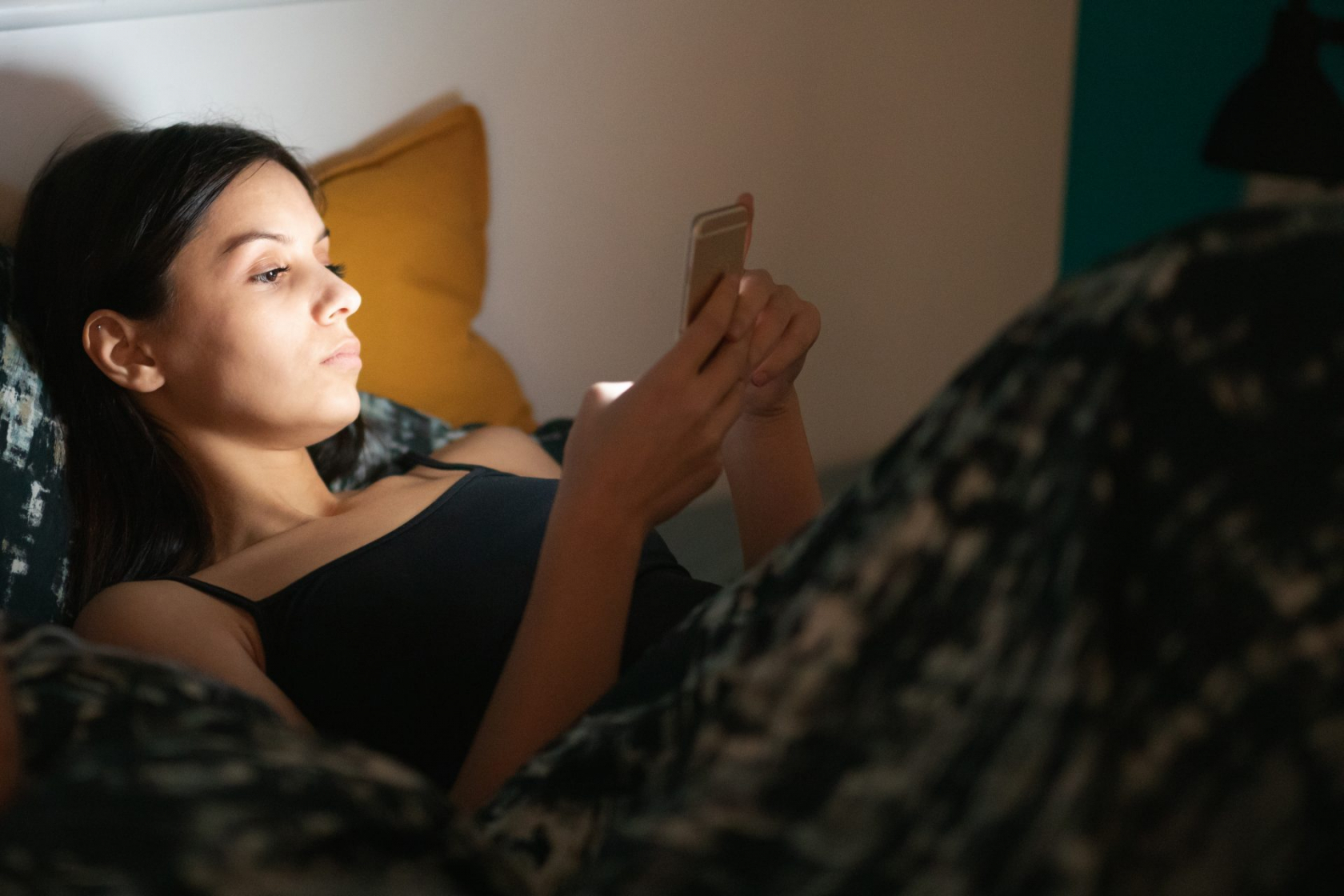This is what happens to your body when you look at your phone in the middle of the night

Written by Lauren Geall
As Stylist’s digital writer, Lauren Geall writes on topics including mental health, wellbeing and work. She’s also a big fan of houseplants and likes to dabble in film and TV from time-to-time.
Welcome to Sleepless Nights, Stylist’s weekly series designed to help you swap your anxiety and worries for a good night’s sleep. This week, we’re looking at how using your phone in the middle of the night can impact your sleep.
What’s the first thing you do when you wake up in the middle of the night? For many of us, the urge to pick up our phone, check the time and scroll through social media is almost instinctual – especially if we’re tossing and turning and finding it hard to get back to sleep.
But before you open Twitter to add to the hundreds of #icantsleep posts flooding in overnight, you might want to think about the impact using your phone could have on your ability to fall back asleep.
In a similar way that scrolling on your phone before bedtime can prevent you from becoming sleepy and falling asleep, using your phone in the middle of the night can ‘wake up,’ your body, explains BeingWell sleep expert James Wilson.
“When we choose to look at work emails, browse social media or watch something scary or too engrossing, this then puts our body into daytime mode,” Wilson explains. “It thinks we want to be awake to carry out these tasks so releases wake-up hormones like cortisol and adrenaline that inhibits our ability to prepare for sleep.
“If we start using our phone in the middle of the night and telling the world #icantsleep, then our brain wakes up and a similar physiological response occurs.”
In this way, it’s not the light being emitted from your phone which is actually the problem – instead, it’s the act of interacting with your phone that forces your body into a more alert state.
“Often phones and devices are cast as the baddies in our battle to get the sleep we need, but the idea that the light from them contributes to disruption our sleep is now being debunked,” Wilson says.
“Instead, it is actually what we do on them that is more likely to have an impact.”
In this way, while looking at your phone to check the time probably isn’t going to have a big impact, interacting with your phone – aka, replying to a text from a friend or scrolling through Twitter – is likely to take its toll and force your body to ‘wake up’, giving it more work to do before you can fall back asleep again.
And because the impact your phone has on your sleep is linked to your actions on it, rather than your exposure to the phone itself, Wilson warns that even ‘quickly’ checking something is probably enough for it to take its toll.
“It really depends on the individual and their sleep genetics – whether they have a way of allowing their mind to wander after looking rather than focusing on whatever they’ve just seen,” he says.
So, the next time you go to check your phone in the middle of the night, have a think about whether it’s really necessary. Sometimes, going on social media or texting a friend is exactly what you need to feel less anxious or alone – but if you want to get back to sleep quickly, it seems like your best bet is to steer clear from technology.
Images: Getty
Source: Read Full Article
